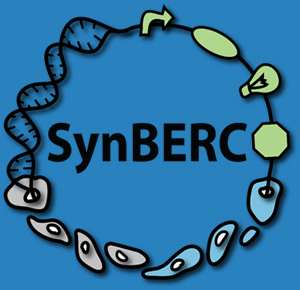Team:UC Berkeley Tools
From 2008.igem.org
<!DOCTYPE html PUBLIC "-//W3C//DTD XHTML 1.0 Transitional//EN" "http://www.w3.org/TR/xhtml1/DTD/xhtml1-transitional.dtd">
BioCad
From PBD of Synthetic Biological Tools
Welcome to the "Platform-Based Design of Synthetic Biological Tools" Wiki
This website provides information and tools for the design of synthetic biological systems using the notions of Platform-based design from the EDA community in electrical engineering and computer science. The work is based at UC Berkeley but includes participants from a number of universities and organizations.
Contents |
Overview
Genomics has reached the stage at which the amount of DNA sequence information in existing databases is quite large. Moreover, synthetic biology now is using these databases to catalog sequences according to their functionality and therefore creating standard biological parts which can be used to create large systems. What is needed now are flexible tools which not only permit access and modification to that data but also allow one to perform meaningful manipulation and use of that information in an intelligent and efficient way. These tools need to be useful to biologists working in a laboratory environment while leveraging the experience of the larger CAD community.
A Platform-Based Design (PBD) approach looks at how genetic information can be viewed as having a particular functionality and what is now needed is to assemble platforms (collections of DNA elements) to perform this functionality. This work attempts to leverage the same methodology employed by PBD for embedded systems to the design of synthetic biological systems. This work places synthetic biology in a PBD framework, discusses required EDA concepts in biological terms, and describes a toolset (Clotho) which will implement the ideas outlined here.
News
7/15/08 - Clotho Alpha Release Coming!
Based on the work of the Berkeley computational iGEM team, the alpha version of Clotho is currently under development. It should be released by August 1st, 2008. Naturally this is a very preliminary release and is intended to get feedback, test deployment issues, and chase down bugs. It lacks functional and architectural views which are planned as well as a connection to Pobol based repositories. These features should be present in a Beta release in the fall of 2008. More information on this can be found here.
7/26/08 - Clotho Alpha Release
We are pleased to announce that the Clotho alpha release is available!! You can get it here. The executable jar file and java docs are available now and source code should be released within a week (if not sooner). Enjoy! Keep those bug reports coming in:)
7/27/08 - Clotho Alpha Release 1.1
A bug slipped into the alpha release which rendered parts navigation useless. It has been fixed and now is available for download. The .jar file and the README file in the .zip indicate that you are using 1.1. This was available as of 7:15pm PST on 7/27/08. Sorry for any inconvenience.
7/28/08 - iGEM Blog
Clotho is part of a Berkeley College of Engineering blog. Check out http://blogs.coe.berkeley.edu/igem/
7/29/08 - Clotho Alpha Source Code Available
The Clotho Alpha source code is now available here. In addition, the required libraries are also available. These are publicly available elsewhere but are included here for convenience and compatibility. A README file is in the works which will provide instructions for those unfamiliar with building java programs.
People
UC Berkeley EECS Leads
UC Berkeley EECS Design Team
- Anne Van Devender (visiting student)
- Jonathan Whiteaker
- Ben Sussman
UC Berkeley Synthetic Biology Lead
UC Berkeley BioEngineering Design Team
- Nade Sritanyaratana
- Matthew Johnson
UC Berkeley Synthetic Biology Consultant
- Jonathan Goler
UCSF Team Lead
UCSF Consultants
- Dr. Howard Salis
- Karsten Temme
- Ethan Mirsky
Stanford Consultant
- Dr. Ryan Owen
More Information
For information about the project:
 "
"





